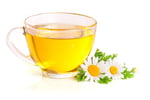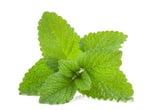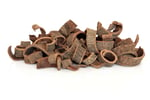If you lay in bed for hours, can't sleep, or struggle with getting good sleep at night, you are not alone; about 70 million Americans suffer from a sleeping disorder. But have no fear. There are several home remedies for health that have been used for centuries to help you sleep better. Here are some classics:

Save up to 50% or more on your family's health care! Input your ZIP Code below for a free OneShare Health quote!

Home Remedies for Sleep
Chamomile Tea
Chamomile tea is a popular herbal remedy for insomnia and other sleep disorders. This is due, in part, to the unique combination of compounds found in chamomile that act as natural sedatives. In addition, these compounds interact with the central nervous system, helping induce feelings of calm and relaxation that promote healthy sleep.
In addition, chamomile has anti-inflammatory properties that help to ease tension throughout the body, allowing you to fall asleep more quickly and stay asleep longer. Finally, research suggests that chamomile may also protect against certain diseases associated with poor sleep quality, such as depression and cancer. Thus, whether you struggle with occasional insomnia or a chronic sleep disorder, drinking a warm chamomile tea before bedtime may be what you need for a good night's rest.
 Valerian Root
Valerian Root
This herb has been used for centuries to promote sleep and relaxation, and recent research has shown that it can be effective in treating mild to moderate insomnia. Valerian root works by increasing gamma-aminobutyric acid (GABA), a chemical that promotes sleepiness and relaxation. It also helps reduce the time it takes to fall asleep and improves sleep quality. While valerian root is generally safe, it can cause headaches, dizziness, and gastrointestinal upset in some people. If you consider taking valerian root for insomnia or another sleep disorder, speak with your healthcare provider first to ensure it is right for you.
Lemon balm
Lemon balm (Melissa officinalis) is a calming herb that has long been used to treat insomnia and other sleep disorders. The herb's calming effects are thought to be due to reducing anxiety and promoting relaxation. Researchers found lemon balm to be as effective as the sleep medication benzodiazepine in treating insomnia in one study. Lemon balm is also sometimes used to treat headaches, digestive problems, and menopausal symptoms. The herb is generally safe when used in small doses, but it can cause drowsiness and should not be combined with other medications that cause drowsiness. If you're considering using lemon balm to improve your sleep, talk to your healthcare provider first to see if it's right for you.
 Passionflower
Passionflower
Passionflower has been used for centuries as a natural remedy for anxiety and stress-related disorders. Its calming properties make it an effective treatment for many conditions that involve heightened levels of stress and agitation, from gastrointestinal issues to insomnia. In addition to these stress-relieving effects, passionflower also has strong sedative qualities that help to promote restful sleep. For example, recent scientific studies have shown that passionflower can be just as effective at relieving insomnia as commonly prescribed sleeping medications. With its versatility in treating many different symptoms and disorders, it is no wonder that passionflower continues to be one of the most popular herbal remedies on the market today.
Lavender
Lavender is a popular herb for its calming and relaxing properties. The plant has a long history of use in folk medicine, and its unique scent is thought to promote relaxation. Lavender is often used in aromatherapy, and the oil can be added to baths or used in massage. The herb is also used in tea, and lavender tea is thought to be helpful for anxiety and insomnia. Additionally, lavender sachets are often placed in closets and drawers to impart a calming fragrance. In short, lavender is a versatile herb with many practical and aesthetic uses. Thanks to its calming effects, lavender is an ideal choice for those looking to reduce stress and promote relaxation.
 Magnolia Bark
Magnolia Bark
With its calming properties and abundance of nutrients, magnolia bark has long been used in traditional Chinese medicine to treat various sleep disorders. This herb is known to have a soothing effect on the nervous system, helping alleviate restlessness and mental stress. In addition, magnolia bark contains compounds that help to increase levels of essential neurotransmitters like serotonin and dopamine, thereby putting you into a more relaxed state. Furthermore, this herb is chock full of beneficial antioxidants and other critical nutrients for supporting healthy sleep cycles.
Overall, it is clear that magnolia bark has much to offer those who struggle with insomnia or other sleep problems. Whether taken in supplement form or tea, this herb provides a valuable tool for getting the rest you need. And so, with its wide range of uses and proven effectiveness, it is easy to see why magnolia bark remains an important part of traditional Chinese medicine for treating insomnia and other common sleep problems.
Did any of these home remedies help you sleep? Leave us a comment below!

Save up to 50% or more on health care!
If you don't want to go the Obamacare route, and also want to save money on your care, check out our Health Care Sharing Ministry that's exempt from the ACA. OneShare Health is an alternative to traditional insurance coverage, we are a Health Care Sharing Ministry that could start saving you thousands per year on your healthcare!
Click below to learn more or get your free OneShare Health quote today.

"And my God will supply every need of yours according to his riches in glory in Christ Jesus."
Philippians 4:19 (ESV)












